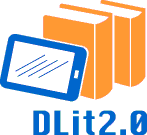Digital Literacy 2.0

Project
In an information society that changes as fast as ours, it is necessary to continually update personal knowledge, while at the same time information and communication technologies constantly develop in new directions. Citizens who do not have access to the online world and do not have the necessary competencies are often at a disadvantage.
Aim of the project
In an information society that changes as fast as ours, it is necessary to continually update personal knowledge, while at the same time information and communication technologies constantly develop in new directions. Citizens who do not have access to the online world and do not have the necessary competencies are often at a disadvantage.
It is the goal of the project to strengthen media competency of socially and educationally disadvantaged adults. A training curriculum which opens access to digital educational programs, points out valuable sources of information and thus strengthens active civic participation and social solidarity within society was developed during the project. The training campaign was conducted in two phases: “Train-the-trainer and qualify-the user''. In particular, multipliers from non-formal educational institutions in eight European countries took part in the trainings. The training curriculum (CC-BY-SA) has been translated into seven of the languages of the participating countries and adapted to the national contexts. Approximately 800 multipliers from non-formal educational institutions took part in the training campaign and approximately 2400 socially and educationally disadvantaged adults could be reached.
The Digital Opportunities Foundation was the coordinating partner of the project group and responsible for the administrative, financial and operative management of the project. Furthermore, the foundation was responsible for the coordination of the individual national statistical survey of internet usage, the management of the questionnaire on best-practice projects and the evaluation of the training measures.
Project partner
- Aga Khan Foundation, Portugal
- Bibnet (Verband flämischer Bibliotheken), Belgium
- Kölner Stadtbibliothek, Germany
- Regionalna biblioteka "Pencho Slaveykov", Bulgaria
- Biblioteka Publiczna im. W.J. Grabskiego w Dzielnicy Ursus, Poland
- Bibliothèque publique d'information, France
- NIACE, Great Britain
Funding program
European Lifelong Learning Programme
![[Translate to EN:] [Translate to EN:]](/fileadmin/digitale-chancen/images/projektteaser/teaser-project-cyberme.svg)
![[Translate to EN:] [Translate to EN:] DiKomBi Projekt presentation, CC0 by Toa Heftiba](/fileadmin/_processed_/4/f/csm_DiKomBi_Projekt_Foto_von_toa-heftiba_677x449_ddd04f3168.jpg)